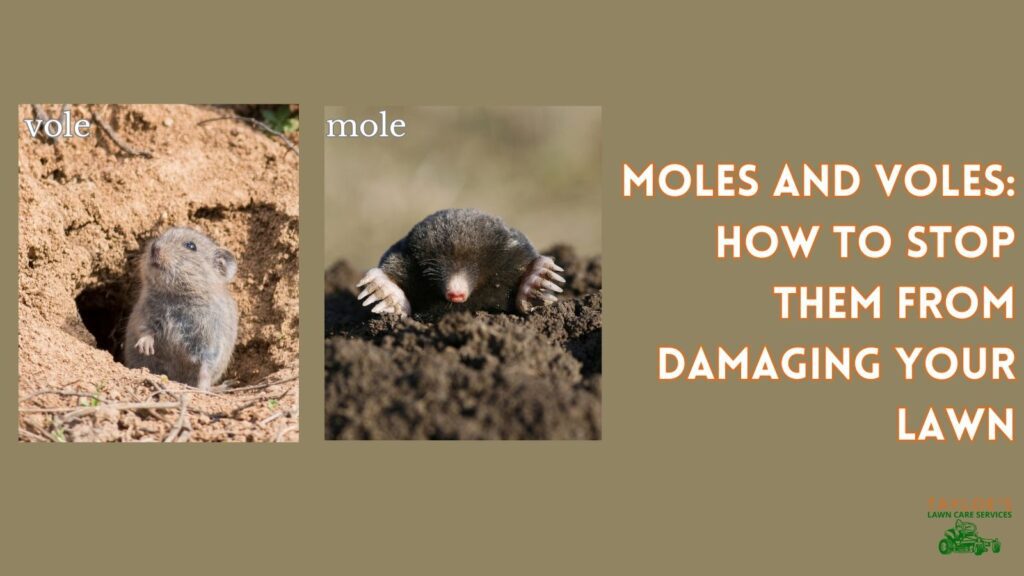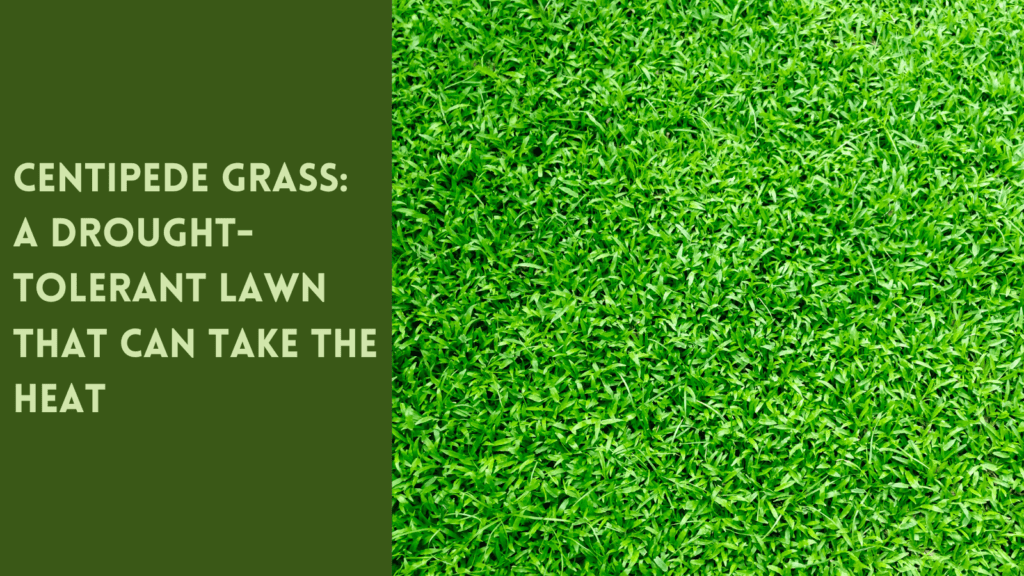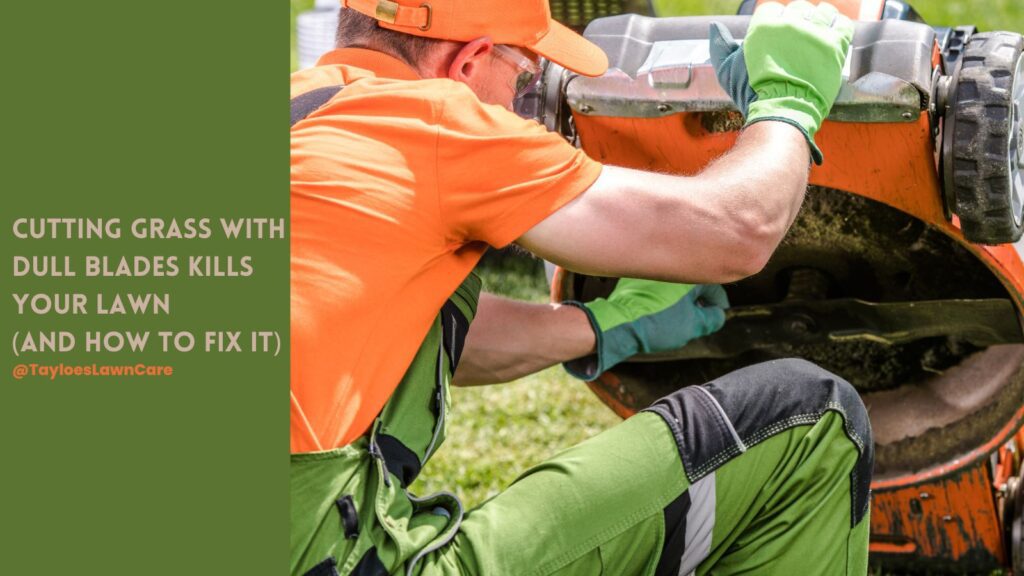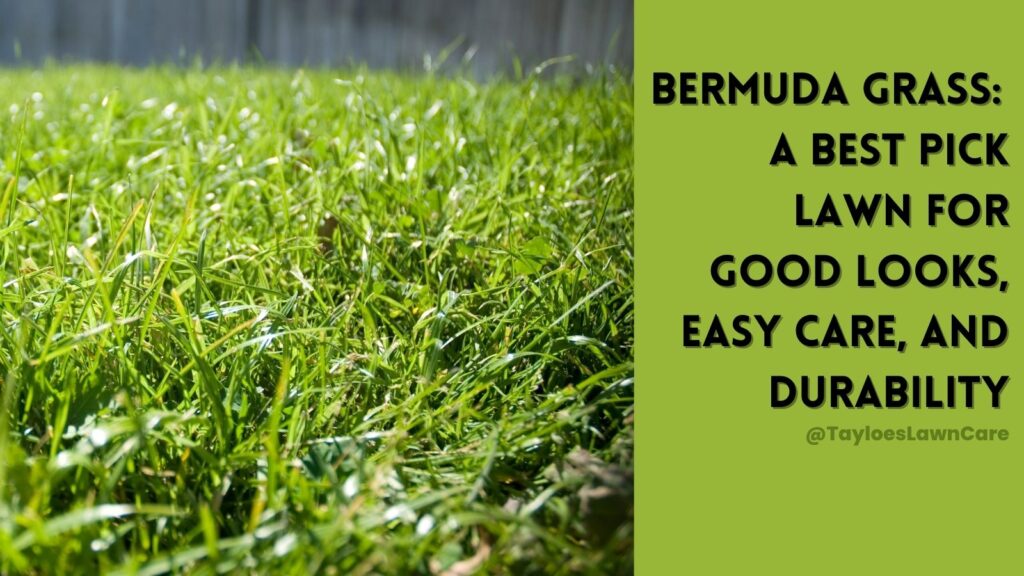Last Updated on: 30th October 2023, 02:18 pm
You might think you provide the best lawn care, but these are actually mistakes.
The world of lawn care is vast and often confusing. With so much information available, it’s easy to encounter misconceptions that can lead you down the wrong path. As experts in the field, we feel we have to demystify these lawn care myths and provide you with accurate, proven information. Today, we’re playing mythbusters and debunking some common misconceptions about lawn care.
Let’s look at some bad practices you may have thought were good.
Lawn Care Myth 1: More Water Means Healthier Lawns
One of the most prevalent myths in lawn care is that more water leads to a healthier lawn. In reality, overwatering can be just as damaging as underwatering. Overwatering leads to shallow root growth, making your lawn less drought-tolerant and more prone to disease. A good rule of thumb is to water deeply but infrequently, allowing the soil to dry between watering.
Lawn Care Myth 2: Shorter Grass Means Less Frequent Mowing
It’s easy to assume that cutting your grass very short would reduce the frequency of your mowing tasks. However, mowing your grass too short, also known as “scalping the grass,” can be harmful. It exposes the soil to sunlight, encouraging weed growth and putting stress on the grass, making it susceptible to pests and diseases. Keeping your grass at a moderate height will keep it healthier and more resistant.
Lawn Care Myth 3: Bagging Grass Clippings is Best
Many homeowners believe that bagging grass clippings leads to a cleaner and healthier lawn. However, leaving the clippings on your lawn after mowing can be beneficial. The clippings decompose and return valuable nutrients back into the soil. This process, known as grasscycling, is a natural way to feed your lawn.
Lawn Care Myth 4: All Insects Are Lawn Enemies
Not all insects are harmful to your lawn. While it’s true that certain pests can cause damage, many insects play vital roles in the ecosystem of your lawn. Beneficial insects, like ladybugs, spiders, and ground beetles, help control pests that can harm your lawn. So, before reaching for pesticides, it’s essential to identify the insects in your yard and understand their roles.
Lawn Care Myth 5: Fertilize Your Lawn Only in the Spring
Many homeowners believe that fertilizing should primarily occur in the spring. However, fertilization should happen at different times throughout the year for a genuinely healthy and robust lawn. Fertilizing in the late summer or early fall can prepare the grass for dormancy in the winter, allowing it to bounce back more vibrantly in the spring. Additionally, consider the type of grass in your lawn. Warm-season and cool-season grasses have different fertilization needs and timings. A professional lawn care service (like Tayloe’s Lawn Care Services!) can help you establish your lawn’s most beneficial fertilization schedule.

Lawn Care Myth 6: The Same Lawn Care Regimen Works for All Grass Types
Many homeowners believe that all grass types require the same type of care. However, different grass types have different watering, mowing, and fertilizing needs. Identifying your grass type and tailor your lawn care routine is essential.
Lawn Care Myth 7: New Lawns Don’t Need as Much Care
Some might think newly planted lawns don’t need as much care. This is a misconception. New lawns, whether grown from seed or laid as sod, require diligent care, including proper watering, controlled traffic, and a carefully planned mowing schedule to ensure that they establish well and thrive.
Lawn Care Myth 8: You Can’t Over-fertilize Your Lawn
Too much of a good thing can be harmful. This applies to lawn fertilization as well. Over-fertilizing can lead to excessive grass growth, burning of the lawn, and environmental harm due to runoff. It’s important to follow a fertilizing schedule and use the correct amount of fertilizer based on your lawn’s needs and the specific type of fertilizer you’re using.
Lawn Care Myth 9: Lawns Don’t Benefit from Compost
Contrary to this myth, using compost can significantly benefit your lawn. It enriches the soil, improves its structure, enhances its ability to hold water, and provides essential nutrients. Applying compost to your lawn yearly can be a great way to keep it healthy and vibrant.
Lawn Care Myth 10: Diseased or Pest-Infested Lawns Always Require Chemical Treatments
While chemical treatments can effectively control lawn diseases and pests, they’re not always necessary and should not be the first solution. Many diseases and pests can be controlled with proper lawn care practices, such as regular mowing, proper watering, and maintaining the right grass height. Furthermore, biological control methods using beneficial insects or fungi can also effectively control certain pests and diseases. It’s essential to correctly identify the problem and consider all available treatment options before resorting to chemical treatments.

The Takeaway: Now That You Know These Lawn Care Myths, Adjust Your Practices
Remember, it’s always best to seek advice from lawn care professionals when dealing with persistent or severe lawn problems.
Why? Because there’s no substitute for accurate knowledge.
We aim to help you make informed decisions for your lawn by debunking these common lawn care myths. Remember, every lawn is unique and may require different care strategies. If you’re unsure about the best approach for your lawn, consider consulting with a professional lawn care service. Our Tayloe’s Lawn Care team is always ready to help guide you toward a healthier, more vibrant lawn. Connect with us by phone or text at 252.287.3376 – we are here to help you have the best lawn ever! We also invite you to follow us on Facebook.
Author Profile

- Randy Tayloe is the COO of Tayloe's Lawn Care Service, LLC. He is a certified custom applicator, recognized by the North Carolina Department of Agriculture Pesticide Division. A native of Bertie County, NC, and graduate of Bertie High School, he wants to beautify his home county - one yard at a time.
Latest entries
 GardeningApril 1, 2025Fountain grasses add colorful foliage and movement
GardeningApril 1, 2025Fountain grasses add colorful foliage and movement GardeningMarch 21, 2025White cloud muhly grass growing guide
GardeningMarch 21, 2025White cloud muhly grass growing guide Lawn CareFebruary 25, 2025Should I mow every week?
Lawn CareFebruary 25, 2025Should I mow every week? Lawn CareFebruary 18, 202515 Simple early spring lawn care tips
Lawn CareFebruary 18, 202515 Simple early spring lawn care tips






